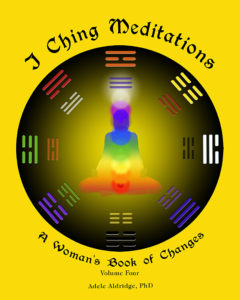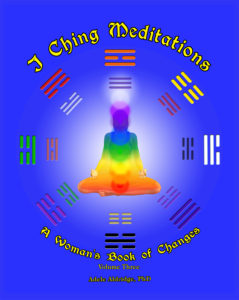• I Ching Geeks — those of you who already are consulting the I Ching, are familiar with more than one interpretation and enjoy reading other perspectives on the subject.
• The person who is somewhat interested, is not a skeptic, likes to have an I Ching reading done for them but so far has not been motivated to delve more deeply into I Ching philosophy.
• The person who is a skeptic concerning the I Ching and has turned it down as a possibility to take seriously.
• The person who has no idea of what the I Ching is and could benefit by its wisdom.
I will address this last group first.
What is the I Ching?
When I wrote this article for I Ching Prescriptions in 2011 there were close to 2,000 books related to the I Ching listed on Amazon. Today I found over 11,000 listings. The subject is vast and complex. My I Ching Prescriptions has a somewhat different perspective on how to use the wisdom of the I Ching. So for the benefit of readers who need some background on the I Ching to help understand what the I Ching Prescriptions are I will give a brief overview here of the subject.
I Ching means, “Book of Changes.” The Book of Changes has one law that remains constant: The only thing that never changes is change itself.
I Ching is a philosophy, not a religion, although there are many who consult it religiously. This philosophy dates back to the origins of Chinese civilization, evolving over centuries of time as Chinese writing and culture developed. This philosophy is based on the premise that everything in the universe arises out of two forces, Yang and Yin, the Chinese words for masculine and feminine energy.
I Ching philosophy says that if you follow the way of nature you will find the right way and right time for action in your own life. I Ching can be viewed as a part of nature herself as the human psyche reflects back, as a collective, where it stands within the whole. By consulting the I Ching we can recognize ourselves as part of nature and that the universe and we are one organism.
I Ching is the Original Computer
Because the archetypes in the I Ching were programmed over centuries by the input of many human psyches the evolution of I Ching philosophy, The Book of Changes, is a collective response to the human condition and part of the collective unconscious. The I Ching might be experienced as a psychic computer, revealing itself to us through thousands of years of time.
The traditional way of consulting I Ching as a tool for divination requires interactivity based on the concept of synchronicity, a term coined by Carl Jung. The power of the I Ching is only activated through the interaction of the human mind.
The Book of Changes is not meant to be read from cover to cover in linear fashion the way Western texts are written. While the I Ching is used for divination, it is not meant to be a fortune-telling device, but guidance for the best possible behavior in a given situation. One brings a question to seek counsel from the book much the way one might seek help from a therapist, priest or any such wisdom figure.
While The Book of Changes incorporates an inter-play of symbols derived from the elements of nature it contains layers of symbols, one within the other where symbols are used to describe other symbols. Because the nature of a symbol always points to something beyond itself, the meaning can never be pinned down but is always open to each new reader. It is no wonder then that many people find this book of wisdom obscure.
I Ching Symbols

The I Ching is comprised of 64 situations, all derived from the combination of 2 lines, yang (_____ whole) ( and yin (__ __ opened). There are 4 combinations of the 2 lines. When the yin and yang lines are combined in sets of 3 they form the 8 trigrams. Each trigram is named for a force in nature and has other attributes associated with it. When the trigrams are combined in sets of 2 each they form the 64 possible combinations that form the hexagrams.
The origins of the I Ching pre-date literacy. We can not begin to imagine today what it was like to live in an environment that did not include the Internet, telephone, electricity — you name it — and be solely dependent upon nature. The people of prehistorical China had to have respect for and awe of nature that in many ways has been lost to our consciousness today. The ancient Chinese did not see themselves as separate from the environment in which they lived.
From I Ching Inspirations: Paintings and Prescriptions
Tags: Books, Chinese, Inspiration, Prescriptions



I read a lot of interesting articles here.
Probably you spend a lot of time writing, i know how to
save you a lot of time, there is an online tool that creates unique, google friendly articles in minutes, just search
in google – laranitas free content source